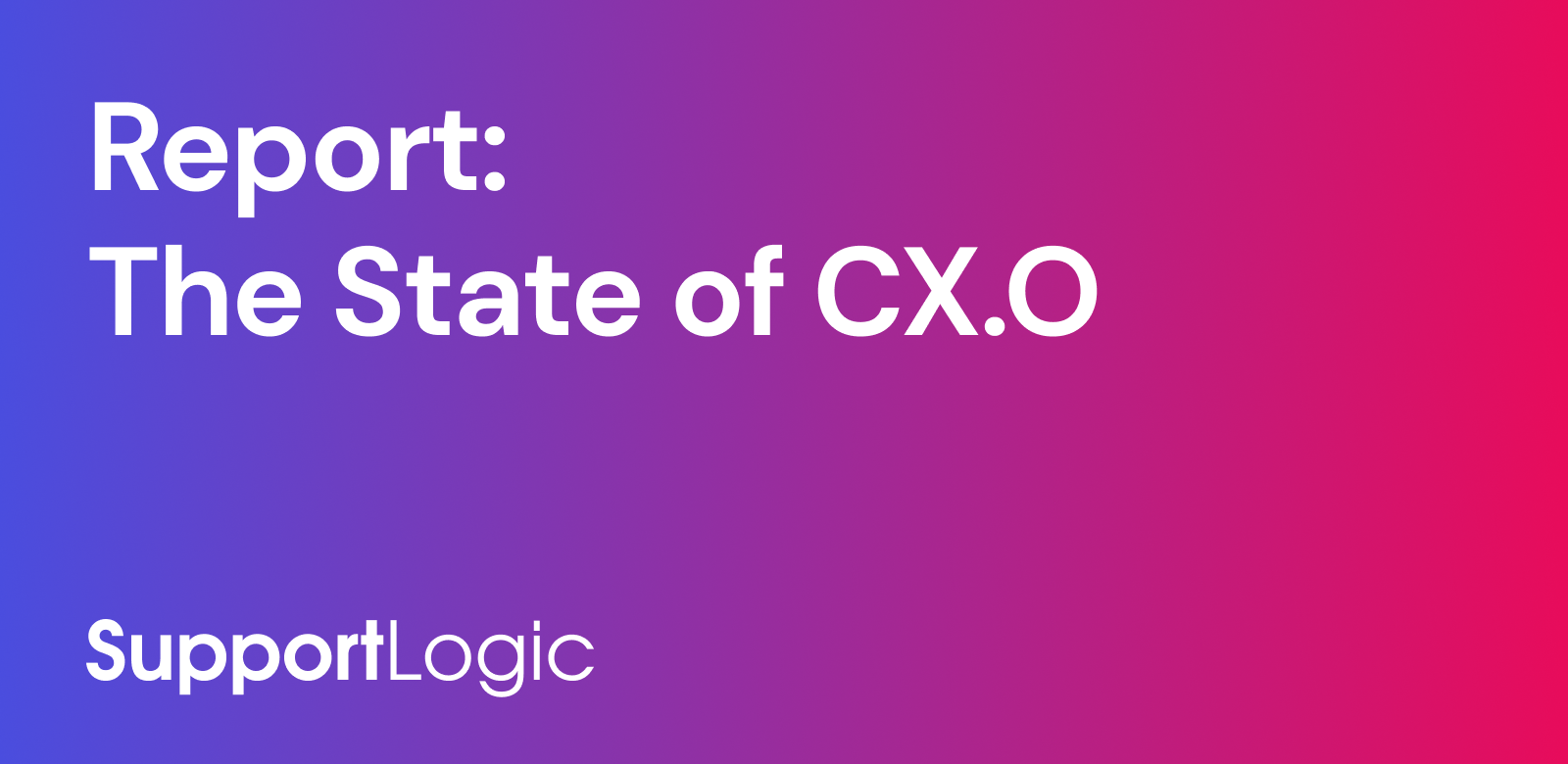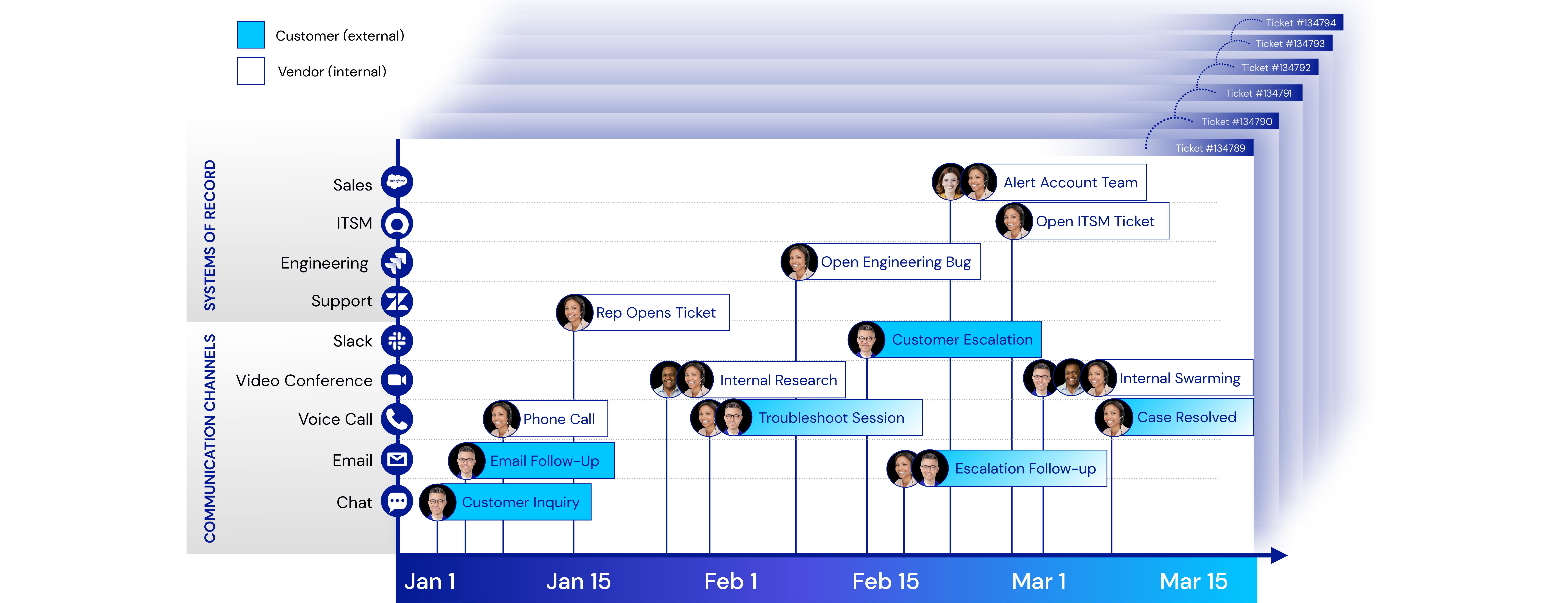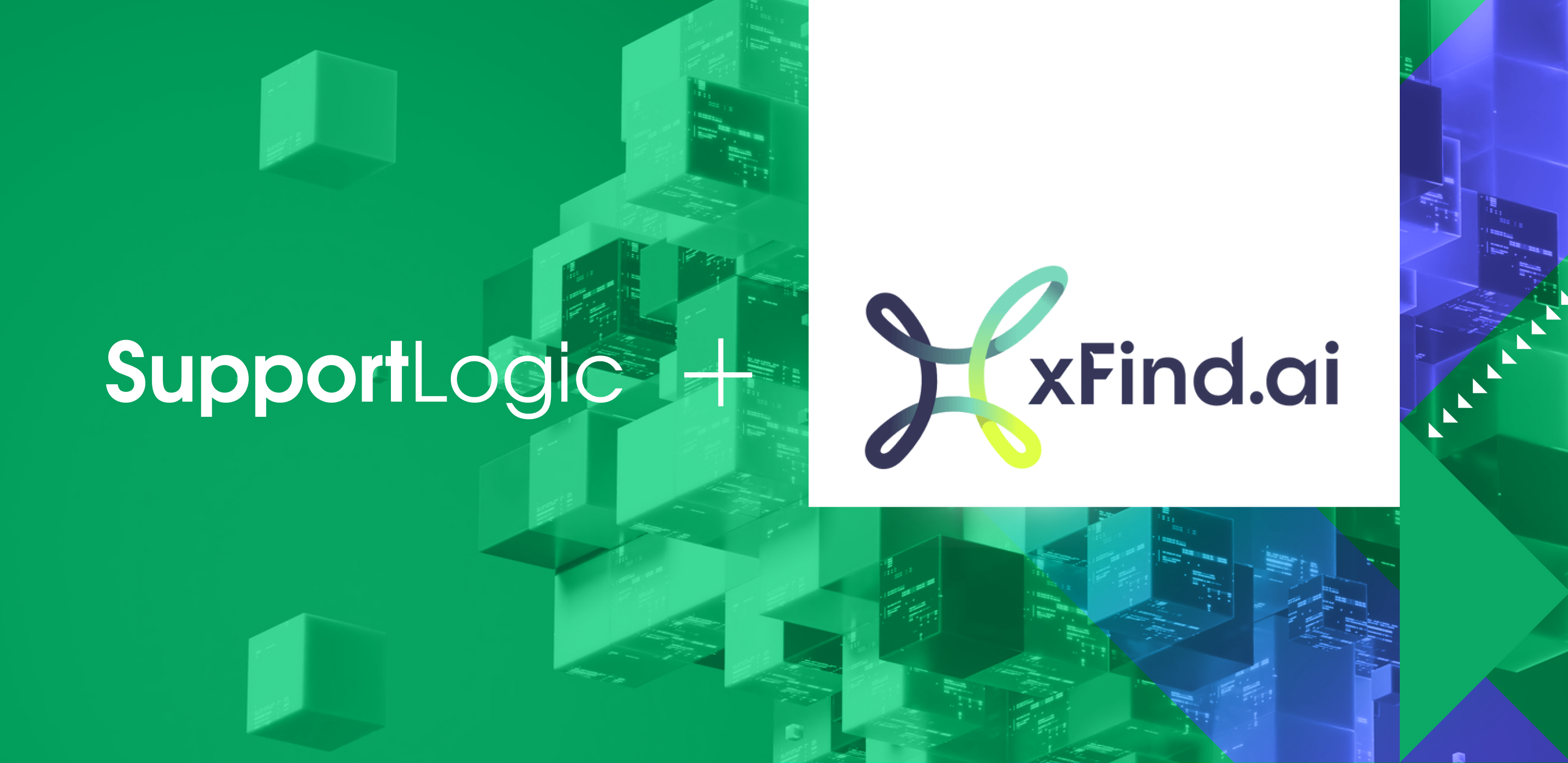Cognitive AI Cloud is the Difference
The hype around AI ignores the reality that enterprise support is complicated. Enterprise customer support occurs across numerous touch points across several channels over time, and they’re all driven by different systems of record. SupportLogic connects to disparate systems of record, continuously monitors, extracts nuanced signals from noisy customer interactions, maintains context, and drives action.
Data Extraction Engine
SupportLogic consolidates data across enterprise systems of record and normalizes the schema into a universal data format.
Signal Extraction Engine
Specialized AI models extract nuanced signals from noisy customer interactions filled with business jargon.
Context Engine
Builds contextual memory over time across interaction, channel, and contact boundaries.
Orchestration Engine
Create custom alerts, events, coaching rubrics, and routing rules to integrate powerful AI with your business processes.























